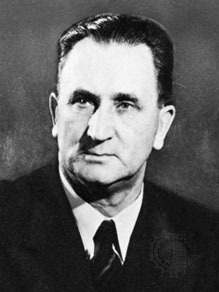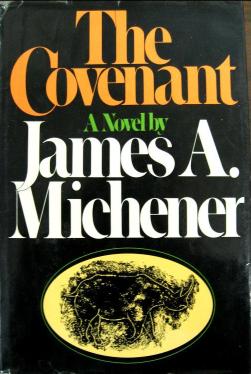Related Research Articles

Afrikaner Calvinism is a cultural and religious development among Afrikaners that combined elements of seventeenth-century Calvinist doctrine with a "chosen people" ideology based in the Bible. It had origins in ideas espoused in the Old Testament of the Jews as the chosen people.

Hendrik Frensch Verwoerd, also known as H. F. Verwoerd, was a Dutch-born South African politician, scholar in applied psychology, philosophy, and sociology, and newspaper editor who was Prime Minister of South Africa from 1958 until his assassination in 1966.

Pieter Willem Botha, was a South African politician. Nicknamed 'Die Groot Krokodil' due to his tough political stance, he was the head of government of South Africa from 1978 to 1989, serving as the last prime minister of South Africa from 1978 to 1984 and the first executive state president of South Africa from 1984 to 1989.

The National Party, also known as the Nationalist Party, was a political party in South Africa from 1914 to 1997, which was responsible for the implementation of apartheid rule. The party was an Afrikaner ethnic nationalist party, which initially promoted the interests of Afrikaners but later became a stalwart promoter and enactor of white supremacy, for which it is best known. It first became the governing party of the country in 1924. It merged with its rival, the South African Party (SAP), during the 1929-1939 Great Depression, and a splinter faction, the Re-United National Party became the official opposition during World War II and won power in 1948. With the National Party governing South Africa from 4 June 1948 until 9 May 1994, the country for the bulk of this time was only a de jure or partial democracy, as from 1958 onwards non-white people were barred from voting. In 1990, it began to style itself as simply a South African civic nationalist party, and after the fall of apartheid in 1994, attempted to become a moderate conservative one. The party's reputation was damaged irreparably by perpetrating apartheid, and it rebranded itself as the New National Party in 1997 before eventually dissolving in 2005.

The Afrikaner Weerstandsbeweging, commonly known by its abbreviation AWB, is a Afrikaner nationalist, white supremacist, and neo-Nazi political party in South Africa. Founded in 1973 by Eugène Terre'Blanche and six other far-right Afrikaners, the AWB advocates for secessionist Afrikaner nationalism and the establishment of an independent Boer-Afrikaner republic, referred to as the "Volkstaat" or "Boerestaat," within part of South Africa.

Orania is a white separatist South African town founded by Afrikaners. It is located along the Orange River in the Karoo region of the Northern Cape province. The town is situated on the R369 highway, and is 871 kilometres (541 mi) from Cape Town and approximately 680 kilometres (420 mi) from Pretoria. Its climate is semi-arid.

From 1910 to 1961 the Union of South Africa was a self-governing country that shared a monarch with the United Kingdom and other Dominions of the British Empire. The monarch's constitutional roles were mostly delegated to the Governor-General of the Union of South Africa.

A referendum on becoming a republic was held in South Africa on 5 October 1960. The Afrikaner-dominated right-wing National Party, which had come to power in 1948, was avowedly republican and regarded the position of Queen Elizabeth II as the South African monarch as a relic of British imperialism. The National Party government subsequently organised the referendum on whether the then Union of South Africa should become a republic. The vote, which was restricted to whites—the first such national election in the union—was narrowly approved by 52.29% of the voters. The Republic of South Africa was constituted on 31 May 1961.

The Herstigte Nasionale Party is a South African political party which was formed as a far-right splinter group of the now defunct National Party in 1969. The party name was commonly abbreviated as HNP, evoking the Herenigde Nasionale Party, although colloquially they were also known as the Herstigtes. The party is, unlike other splinter factions from the National Party, still active but politically irrelevant.

General Constand Laubscher Viljoen was a South African Army officer and politician. He co-founded the Afrikaner Volksfront and later founded the Freedom Front. He is partly credited with having prevented the outbreak of armed violence by disaffected white South Africans prior to post-apartheid general elections.

Baasskap, literally "boss-ship" or "boss-hood", was a political philosophy prevalent during South African apartheid that advocated the social, political and economic domination of South Africa by its minority white population generally and by Afrikaners in particular. The term is sometimes translated to the English-language term "white supremacy" and functioned either as a description or an endorsement of white minority rule in South Africa.

Apartheid was a system of institutionalised racial segregation that existed in South Africa and South West Africa from 1948 to the early 1990s. It was characterised by an authoritarian political culture based on baasskap, which ensured that South Africa was dominated politically, socially, and economically by the nation's minority white population. Under this minoritarian system, white citizens held the highest status, followed by Indians, Coloureds and black Africans, in that order. The economic legacy and social effects of apartheid continue to the present day, particularly inequality.

The Covenant is a historical novel by American author James A. Michener, published in 1980.

A Volkstaat, also called a Boerestaat, is a proposed White homeland for Afrikaners within the borders of South Africa, most commonly proposed as a fully independent Boer/Afrikaner nation. The proposed state would exclude Afrikaans-speaking Coloureds but accept South Africans of English ancestry and other White South Africans, if they accept Afrikaner culture and customs.
Afrikaner nationalism is an ethnic nationalistic political ideology created by Afrikaners residing in Southern Africa during the Victorian era. The ideology was developed in response to the significant events in Afrikaner history such as the Great Trek, the First and Second Boer Wars and the resulting anti-British sentiment and Anti-communism that developed among Afrikaners and opposition to South Africa's entry into World War I.

The Boerestaat Party is a Boer nationalist South African political party founded on 30 September 1986 by Robert van Tonder. It was never officially registered as a political party because it was unable to rally 500 persons under one roof, a requirement under South African electoral law for official political party status. It was never represented in the South African Parliament, neither in the apartheid era nor after democratisation. In 1989, it joined the Afrikaner Weerstandsbeweging (AWB) in declaring support for Jaap Marais, the leader of the Herstigte Nasionale Party and has worked with the HNP on occasion since. The party was a charter member of the Afrikaner Volksfront coalition group. It has also operated with the paramilitary group, the Boere Weerstandsbeweging led by Andrew Ford.

Carel Willem Hendrik Boshoff was a South African professor of theology and Afrikaner white nationalist.

Eric Hendrik Louw was a South African diplomat and politician. He served as the Minister of Finance from 1954 to 1956, and as the Minister of Foreign Affairs from 1955 to 1963.

Melanie Verwoerd is a South African and Irish political analyst and diplomat. She was previously a politician, ambassador, and the director of UNICEF Ireland.
AfriForum is a South African non-governmental organisation which mainly focuses on the interests of Afrikaners, a subgroup of the country's white population. AfriForum has been described as a "white nationalist, alt-right, and Afrikaner nationalist group", though this description is rejected by the organisation's leadership, who refer to themselves as a civil rights group.
References
- 1 2 Du Toit, Brian M. (1991). "The Far Right in Current South African Politics". The Journal of Modern African Studies . 29 (4): 627–67. doi:10.1017/S0022278X00005693. ISSN 1469-7777. JSTOR 161141.
- ↑ Manzo, Kathryn A. (1998). Creating Boundaries: The Politics of Race and Nation. Lynne Rienner Publishers. p. 86. ISBN 9781555875640.
- ↑ du Toit, 'The Far Right in South Africa', p. 648
